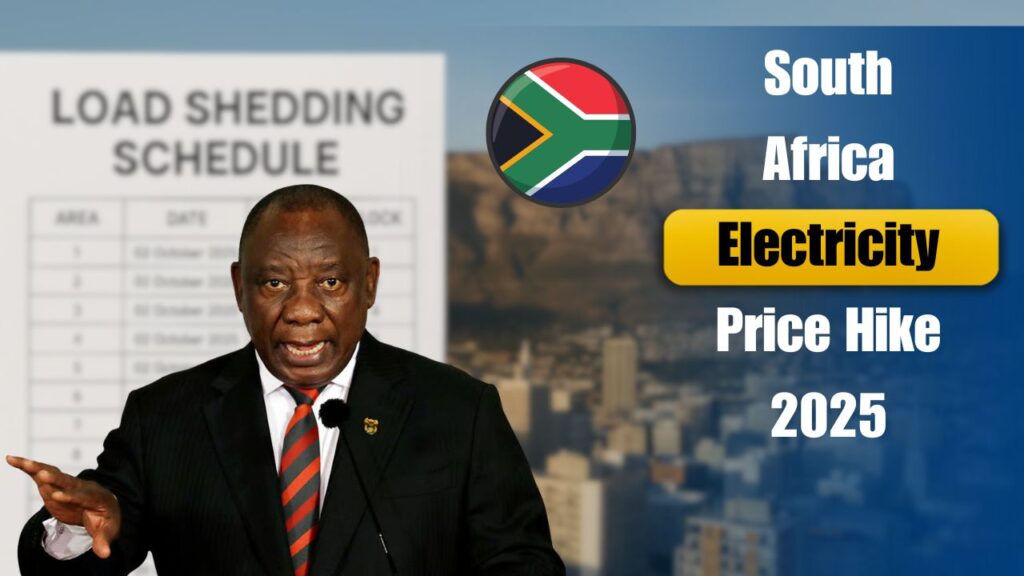Electricity Prices Going Up in South Africa 2025 South Africa’s power costs will rise again in November 2025. NERSA has approved new rates that will make life harder for families and businesses that are already struggling with high costs. The price jump comes at a bad time as many South Africans are finding it tough to pay their bills. This increase will affect everyone from homeowners to shop owners & factory workers. People need to know why prices are going up and how it will impact their daily lives. The higher rates mean most households will need to spend more on power bills each month. Businesses might have to raise their prices to cover the extra costs. This change forces many South Africans to look for ways to save power or find other energy options. Some might switch to solar panels while others will simply use less electricity to keep their bills down. The new rates show how South Africa’s power problems continue to affect everyday life. People and businesses must now plan ahead to deal with these higher costs.

Reason Behind South Africa’s Electricity Tariff Hike
NERSA approved a price increase to help Eskom pay for daily operations, debt and new equipment. South Africa’s power system faces many problems like blackouts delayed repairs & higher energy prices. NERSA thinks the higher rates will give Eskom enough money to provide power & improve its service. But many people believe customers shouldn’t have to pay more because of poor management at Eskom. The power company’s problems have built up over time & now everyone must deal with the results. This price increase affects both homes and businesses that depend on electricity.
Also Read : SASSA Social Grants November 2025 Full Payment Schedule Amounts Matrix – Beneficiary Guide with Rate Table
Exact Price Rise Announced By NERSA
Starting November 2025 electricity prices will go up by 12 percent across the nation. The exact amount might be a bit different in your area because local power companies can add small extra fees. This means regular homes might pay between R150 & R300 more each month based on how much power they use. Businesses will likely pay even more. This is especially true for companies that use lots of electricity. When businesses pay more for power they often raise their prices too.
Impact Of The Tariff Hike On Citizens And Businesses
The electricity price increase is hitting South Africa at a bad time. People are already struggling to pay more for food gas and transport. Many families will now have to cut back on basic needs because their budgets can’t handle higher power bills. Small businesses are also in trouble since they don’t make much profit. They might have to raise their prices to stay open which will make everything more expensive for everyone. This price hike will affect the whole economy in a negative way.
Also Read : SASSA Senior pension November Calendar Governance Standard Dates – Full Payment Dates Timetable Released
Ways To Manage And Reduce Electricity Costs
How to Deal with Rising Power Bills Everyone faces higher electricity costs at home these days but there are ways to reduce the impact on your wallet. You can start by switching to energy-efficient light bulbs and appliances throughout your house. Try to limit the use of devices that need lots of power like water heaters and air conditioners. It also helps to learn about different energy options. Solar power is a good choice for many homes and can save money over time. These simple steps will help you manage your electricity costs without too much hassle.




